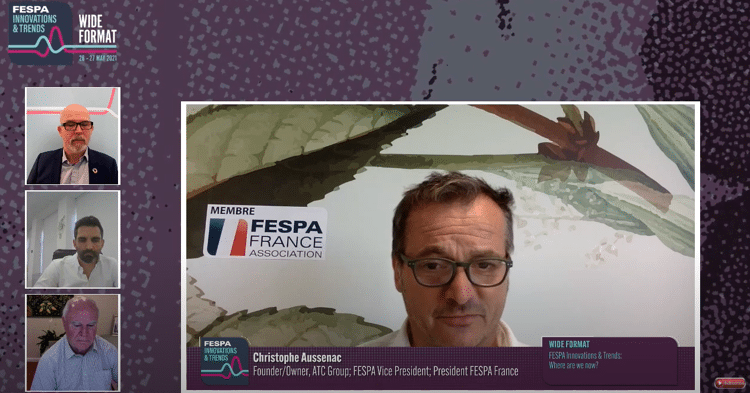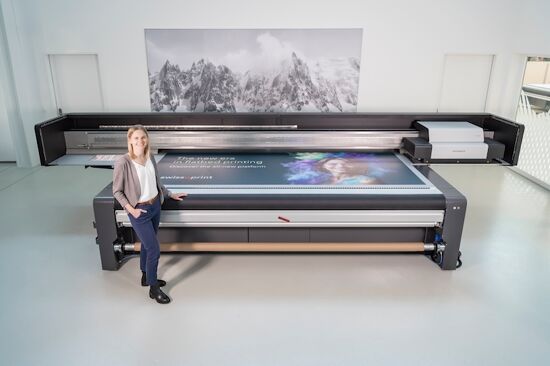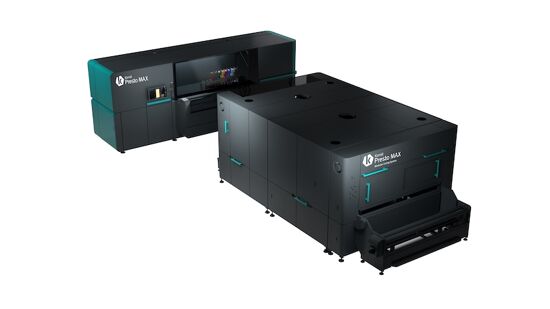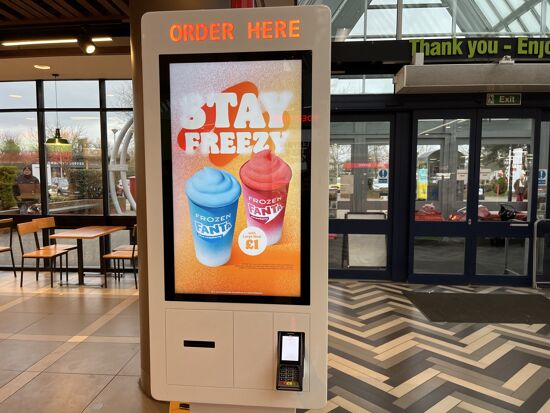Wide format trend talk: print management

In our recent FESPA Innovation & Trends (FIT) virtual event for wide format print, we brought together three printers from different countries to discuss trends in wide format and hear their thoughts on what the future holds.
The host: Graeme Richardson-Locke: Technical Support Manager, FESPA. With 35 years’ experience in the industry, Graeme began as an apprentice and progressed through several directorships before joining FESPA in his current role. He is also a member of the Academy of Screen and Digital Printing Technologies.
The experts: Christophe Aussenac: FESPA’s President-Elect and Founder of the ATC group, France, which he established in 1991 and has taken the lead in developing sustainable solutions for its clients in point of sale and wide format graphics.
Keith Ferrel: General Manager of Operations at Cactus Imaging based in Sydney, Australia, which specialises in large-scale outdoor advertising applications and retail point of sale using the latest digital technology.
Javier Rodriguez Centeno: Director General of Grupo Panorama, Spain, a leading printer for retail, events and visual communication.
Are you seeing a reduction in the volume of orders coming through print management companies (PMCs) following the COVID-19 pandemic?
Keith: Yes. It's a very interesting question because it's something that we've noticed a lot over the last seven or eight months. There's less and less work coming from print management companies and the main reason for this is a lot more clients are coming direct. Over the years they’ve seen that we've been the third party, if you like, we're at the end of the chain, we're printing, we're dispatching and in a lot of cases, we're installing the work. So, why do they need a print management company?
What we’ve found is that a number of clients, certainly over the last 12 months, are trying to eliminate costs themselves. It's been good for us because we've actually got a higher rate ourselves without excess money being put on by management companies. It's been a win-win situation. They are dealing direct and they're getting the right story. Don't get me wrong, I'm not decrying print management companies because there is a place for them. But, from what we've noticed, we’re getting a lot less work from them and more clients are coming direct.
Javier: Well, it's hard to say. I would say not really, because in my opinion PMCs have existed for many years. They will be there in the future too because I think that sometimes customers want to be supported by a PMC, but they also need to have more control over the production. For example, one customer last month had something like 20,000 units in 500 different artworks and putting a third party in between is not a good idea. I don’t think that it’s all about cost because you can reduce your staff when you count on PMC, but it's true that you have less control and you are further removed from the printer. Some customers prefer one option or the other. We are comfortable either way and for us, PMCs are direct customers, so are customers.
Watch the whole conversation here, and for more information on FESPA Innovations and Trends Wide Format Graphics and Interior Décor event, visit here.
Discover the latest innovations in garment printing at the Global Print Expo 2021, Europe's leading exhibition for screen and digital wide format print, textile printing and signage. Discover the latest products, network with like-minded individuals and explore new business opportunities. Register now and use promo code FESH101 to receive a discount of 30 euros.
Interested in joining our community?
Enquire today about joining your local FESPA Association or FESPA Direct
Recent news

The importance of ink for large format printers
Ink is crucial for large format inkjet printers, influencing substrate compatibility, productivity, and cost. Nessan Cleary discusses the three main types which include UV-curable ink, latex ink and eco-solvent ink. Each ink type has specific strengths and weaknesses, making printers choice dependent on budget and intended applications.

What are the benefits of Direct-To-Fabric printing?
Direct-to-fabric printing is gaining popularity for high-volume textile production, enabling on-demand, customized short runs. These printers offer ink flexibility, accommodating various fabric types like cotton and silk, though ink development focuses on faster turnaround by reducing pre- and post-processing. Compared to traditional methods, direct-to-fabric inkjet printing is a more sustainable option due to reduced water and chemical usage, and localized production.

What are the opportunities for large format providers regarding digital touch screens?
Digital touchscreens are becoming increasingly common, offering businesses opportunities to improve customer engagement and streamline operations. Nessan Cleary shares, while more expensive to implement than standard digital displays due to complex software and integration needs, touchscreens provide self-service options, multilingual support, and can reduce staffing costs in various settings like retail, transportation, and healthcare.
